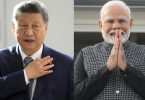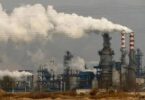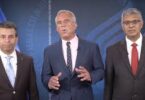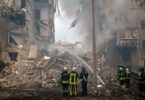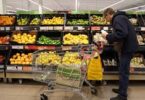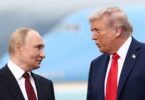Diamond-rich Botswana in Africa has run out of medical supplies in its public health system. President Diko Buma has declared a national emergency. The public health systems owe private suppliers $17.5 million, and it has no money to pay.
The reason for the dire straits is that the US aid for its HIV programme, which is one-third of its national health budget, has been stopped by the Trump Administration as part of its ruthless pruning of public expenditure.
At the other end of the Atlantic Ocean, in oil-producing Venezuela in South America, Venezuelans are facing severe food shortages. Families are unable to buy protein-rich food for the children. They are not even able to buy the bare necessities to keep food on the table. Schools have asked parents not to send children to school if they had not had proper food.
Apart from growing malnutrition, children who have not had a proper meal are developing headaches. There are times when children go off to bed early to escape the pangs of hunger. The prices have gone up, and the American restrictions are affecting the economy.
The slowing global economy and its bleak consequences are showing up in different forms, affecting the daily lives of the people across the countries as can be seen from the examples of Botswana and Venezuela.
Meanwhile, South Africa, which will be hosting the 2025 G20 summit in November, has appointed a commission of experts headed by Nobel Economics Prize winner Joseph Stiglitz and comprising other experts to prepare a report on global inequalities. The report is to be ready by November when leaders of G20 countries meet in November.
South African President Cyril Ramaphosa, announcing the initiative, said people “see the impacts of rising food and energy prices, of debt, of trade wars, all driving this growing gap between the rich and the rest of the world, underlining progress and economic dynamism. A new oligarchy in our global economy is becoming apparent.”
The world is facing an economic crisis, but it is something that neither advanced economies nor the emerging economies are willing to admit. It seems that an admission that there is an economic crisis would mean an acceptance that the market economy, which has been the reigning ideology for more than four decades, is crumbling. Even the richest economy like the United States is in a panic mode, and President Donald Trump’s feverish tariff measures are a symptom of economic uncertainty. As no one wants to recognize the problem, it is evident that experts and leaders are flailing hands in their bid to find a way out of the economic impasse.
What is needed is for the experts and heads of countries of the world to come together and look for a solution. Intertwined with the economic and unequal wealth crisis is the deteriorating climate issues. The unusually intensive monsoon in India, Pakistan and Nepal has killed more people than ever, and the economic damage it has caused runs into billions of dollars.
There is a connection between economic stability and curbing greenhouse gas emissions. It is the rising global temperatures that is the cause behind the monsoon havoc. It becomes necessary to take mitigatory action with regard to climate change, and the investments in clean energy economies could help revive the stalled growth rates. A green economy is one way of ensuring equitable growth, which will keep the health of the planet as well as that of societies in good shape. But it needs courage and resolve to pursue a new economic path which protects natural resources and helps people to lead healthy and productive lives.


